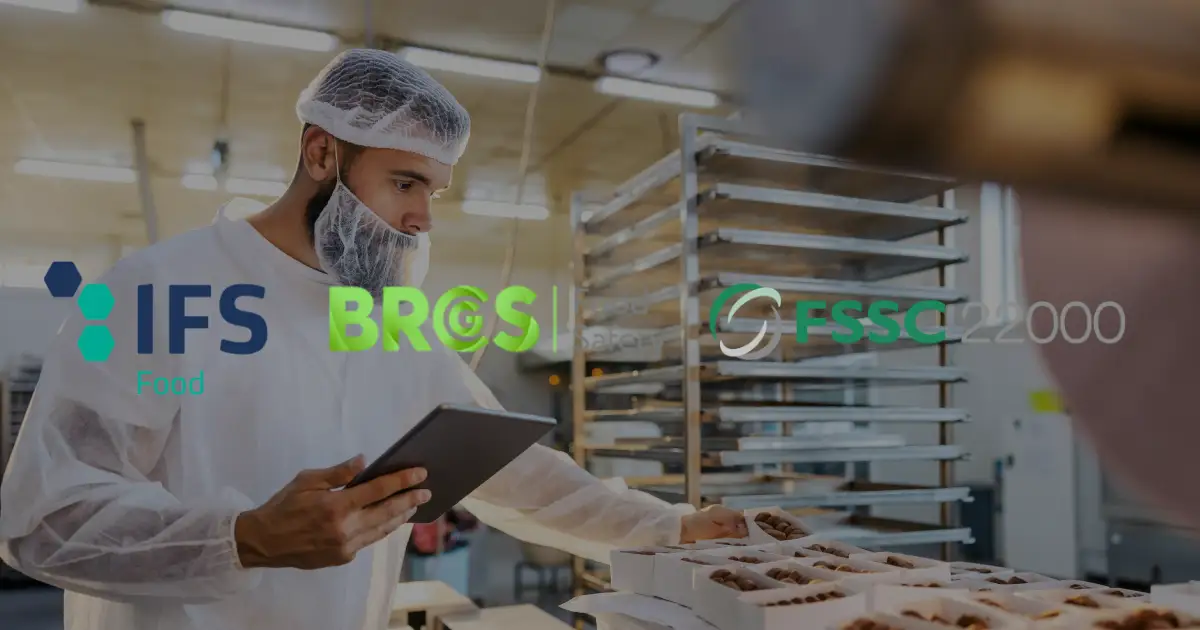
Trust is everything in the food industry, especially now that products are traded globally every day. To ensure that companies and countries follow the same rules, a clear and consistent approach to food safety is essential. That is why food safety certifications are now indispensable for businesses in the B2B food market.
Food safety refers to the measures we take to prevent illness, contamination, and spoilage of food. It covers how food is handled and stored, how production environments are kept clean, and how products are tested. The primary goal of food safety is to protect consumers by ensuring food is safe to eat and meets legal requirements. Food safety is not the same as fair trade certification, and halal or kosher certifications do not fall under food safety either.
Food safety certifications demonstrate that a company’s products, processes, and facilities comply with important hygiene and processing standards. These certifications are issued by recognized organizations and ensure that food is produced, processed, and delivered safely. They are important for preventing contamination, improving traceability, and proving regulatory compliance in international markets.
A food safety certification covers all the critical areas required to ensure food safety. This includes hygiene and cleaning, risk management (such as HACCP), traceability, supplier management, safe processing, staff training, and facility standards.
For B2B businesses, these certifications reduce risk, improve product quality, and show that a company operates responsibly. They help companies access international markets, speed up supplier approvals, and build trust with partners and regulators. Ultimately, they signal that a company takes food safety seriously.
Any business involved in producing, processing, packaging, or distributing food should consider certification. This is especially true for companies operating internationally or supplying large retailers and manufacturers. However, the need for certification also applies to co-packers, storage facilities, and transport providers.
Food safety certifications are based on international standards for handling, processing, and controlling food safety risks. The Global Food Safety Initiative (GFSI) evaluates major certification schemes to ensure they are consistent and reliable across markets.
Common GFSI-recognized food safety certifications include:
In addition, HACCP (Hazard Analysis and Critical Control Points) is a fundamental method used in nearly every food safety system. This approach focuses on identifying and controlling potential hazards in food production and often serves as the mandatory foundation for certification.

The Global Food Safety Initiative (GFSI) is an international collaboration aimed at harmonizing food safety standards worldwide. GFSI does not develop its own certifications but instead benchmarks and recognizes existing certification schemes to ensure they meet consistent requirements for safety and quality.
GFSI’s main goal is to reduce audit duplication, lower costs for businesses, and increase consumer confidence in food safety. By uniting certifications under one framework, GFSI makes it easier for companies operating in multiple countries to comply with regulations. Read more in our article: GFSI: What Is It?

Food safety regulations are legal requirements set by governments to keep food safe, properly labeled, and traceable throughout the supply chain. These laws establish mandatory standards for hygiene, processing, storage, and distribution. While rules vary by country, many follow international guidelines such as the Codex Alimentarius developed by the FAO and WHO.
In the European Union, food safety falls under the General Food Law (EC 178/2002), which applies to all member states. In the United States, the Food Safety Modernization Act (FSMA) focuses on prevention rather than response. Other key authorities include the CFIA in Canada, FSSAI in India, and SAMR in China.
These laws often require systems like HACCP and work alongside voluntary certifications to ensure global food safety.